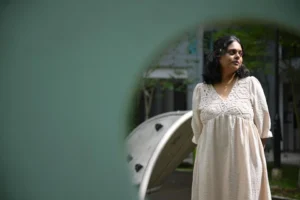Breast pain (known as mastalgia) can be unsettling, even though it is common for many individuals. While discomfort does not always indicate a serious problem, understanding the reasons behind breast pain and knowing when to seek screening are important steps in looking after your health. Below is an overview of the types of breast pain, the reasons they occur, and how regular screening can offer both early detection and peace of mind.
Describe Your Breast Pain
Breast pain can vary from mild tenderness to a sharper, more intense feeling. It might affect one breast or both, and can sometimes spread to the underarm area. Many people experience breast pain at some point, and it is often linked to hormonal changes or benign (non-cancerous) conditions. However, there are instances when breast pain may require further investigation.
Cyclical vs. Non-Cyclical Breast Pain
Cyclical Breast Pain
- Linked to Hormones – This type of pain is typically related to hormonal fluctuations in the menstrual cycle.
- Timing – It often starts just before a period and eases once menstruation begins.
- Pattern – The intensity can vary from month to month, but it usually follows a predictable cycle.
Non-Cyclical Breast Pain
- Unrelated to Menstrual Cycle – Pain may not have a clear pattern and can occur at any time.
- Possible Causes – Could stem from factors like muscular strain, infections, inflammation, or certain benign growths.
- Further Assessment – If pain persists or worsens, it may be advisable to have a healthcare professional evaluate the cause.
Overlapping Signs to Be Aware Of
While many causes of breast pain are not serious, it is important to stay aware of any additional symptoms that might suggest further attention:
- New Lumps or Thickening – If you feel a lump or detect an area of increased density, it is prudent to consult a healthcare provider.
- Changes in the Skin – Dimpling, redness, or alterations in texture may require further examination.
- Nipple Discharge – Any unexplained discharge, particularly if it is bloody, should be discussed with a doctor.
- Persistent or Worsening Pain – If your discomfort lasts for an extended period or becomes more intense, it may be beneficial to seek advice.
The Importance of Regular Screening
Regular screening, such as mammograms or breast ultrasounds, can help identify potential concerns at an early stage, sometimes before symptoms are noticeable. Early detection can make a meaningful difference in the management of any issues. Screening also provides reassurance that, even if pain is present, there are no underlying serious problems that remain undetected.
If you have significant risk factors—such as a family history of breast cancer or previous breast conditions—your doctor might recommend starting screening at an earlier age or scheduling examinations more frequently.
Book a Consultation at The Radhika Breast & General Surgery Clinic
Breast pain should not be a cause of panic, but it is always wise to stay aware of changes in your body. If you are experiencing ongoing discomfort or wish to discuss screening options, Dr Radhika Lakshmanan and the team at The Radhika Breast & General Surgery Clinic can provide guidance tailored to your needs.
Book an appointment today to find out more about the steps you can take to maintain your breast health and gain peace of mind. Your well-being is important, and we are here to support you on your path towards feeling comfortable and confident.










